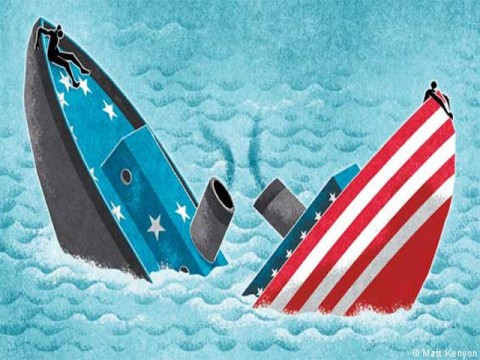By ALBERT JAY NOCK, June 1936
General de
Caulaincourt’s memoirs, which have been published recently, give us a
vivid sense of the strategy employed against Napoleon by Russia’s
great deliverer, Prince
Mikhail Illarionovich Kutusov-Golenishchev. It was much like the classical strategy of the Scythians, and even more like that which won for the Roman general, Fabius, the surname of Cunctator. The
Russian policy was laid out on a grand scale. The French
invaders were keen for battle, but “that devil Kutusov,” as Napoleon
called him, persistently refused to accommodate them. Once in a
while, to satisfy his subordinates, he went through the motions of
taking a stand, as at Tarutino and Krasnoë, but always against his own
judgment; and after Borodino, as Count Tolstoi remarks, “he alone did
everything in his power to hold the Russian army back from useless
fighting.” Technically, Napoleon won the battle
of Borodino, and all Russia except Kutusov
regarded it as a terrible defeat. He knew it was a great victory, and
time proved that he was right. When Napoleon went forth to renew the
battle next day, Kutusov was not there; nobody was there; the French
found themselves standing in the middle of all outdoors with no one
to tell them where Kutusov was, or even which way he had gone.
They pushed on past Mozhaisk to Moscow, and were
disappointed again; no Kutusov, no army, nobody, a deserted city.
Then the fire, then presently the Great Retreat, with Kutusov acting
as a sort of escort or guard of honor, ushering Napoleon back over
the border. There was little fighting, practically none except some
occasional irregular warfare waged by roving bands of guerrillas and
Cossacks; the armies never actually met. Some authorities have criticized
Kutusov for dealing so gently with the erring, but the severest
critic can hardly help noticing that not more than one per cent of
the Grand Army lived to cross the frontier.








.jpg)










